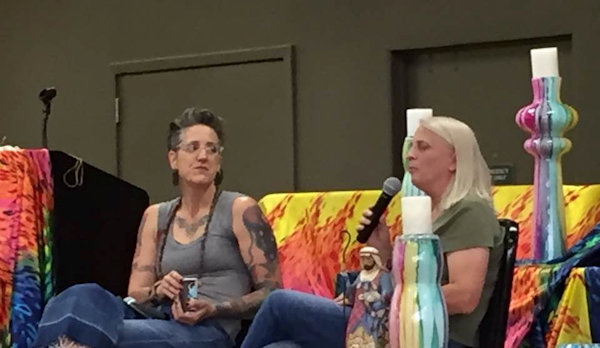In this month’s blog, Drinking from the Cup, Rev. John Boley affirms tradition kept fresh by grace.
REV. JOHN W. BOLEY
Clergy Assistant to the Bishop
Much has been made these days about how people resonate with being “spiritual but not religious.” This attitude and understanding suggests that people still embrace the power of the spiritual reality of God in our lives, but that they do not so much resonate with the institutional church and its staid traditions and humanness. People who are spiritual but not religions hope for opportunities for seeing God at work, but don’t necessarily believe that it is best conveyed through institutions which take on too many human characteristics. The narrow worship and service traditions of the church and its institutional bureaucracy don’t capture their broader view of the powerful work of God. There is much here that even an old goat like me who has spent his life in the organized church can understand.
At the School for Pastoral Ministry this year, the theme was “Getting Real.” We had two powerful presenters. One was our own Rev. Faith Fowler, pastor of Cass Community Church. Faith, with her typical dynamic presence, kept us informed and laughing over some aspects of getting real in our faith commitments through her eyeglasses of service in the unique environment of Cass Community.

The second presenter was Nadia Bolz-Weber, an ordained ELCA pastor, who described for us the congregation she leads in Denver – a congregation that draws all types and yet fits within the ELCA church and its more liturgical and traditional Lutheran background. At one point, Nadia described her congregation as “religious but not spiritual.” This description came as a surprise since it is so contrary to the “spiritual but not religious” trend of today. And it seems so contrary to what we would expect her parishioners to desire.
Her reference was to the fact that the liturgical basis for their worship formed the stability and the comfort that her congregation needs to continue to make it through the week in usually difficult circumstances. Sometimes, the form, structure, tradition and comfort of established worship structures is what congregants need. And this seems most probable in an organized religious setting.
I was describing all of this to my wife Diane, who almost always gets it right the first time, and her response was, “Why can’t we be both religious and spiritual.” Bingo!
Put my name in the column, with Diane, of people who fervently believe that we can be both religious and spiritual. Spirituality without religion is too often so nebulous that it cannot be channeled or sustained. Religion without vibrant spirituality deserves to die.
At our collective best, we affirm the great traditions of our faith that are tried and true, prune those which are dying or dead, and seek to find the newness of the ever unfolding grace of our triune God, who still speaks in Scripture, tradition, reason and experience. Can we affirm the past and adapt to and embrace the present and future? I believe we can – and we United Methodists, despite our warts, are in a great position to go into the future being both religious and spiritual with joy and thanksgiving.
Last Updated on December 15, 2023

